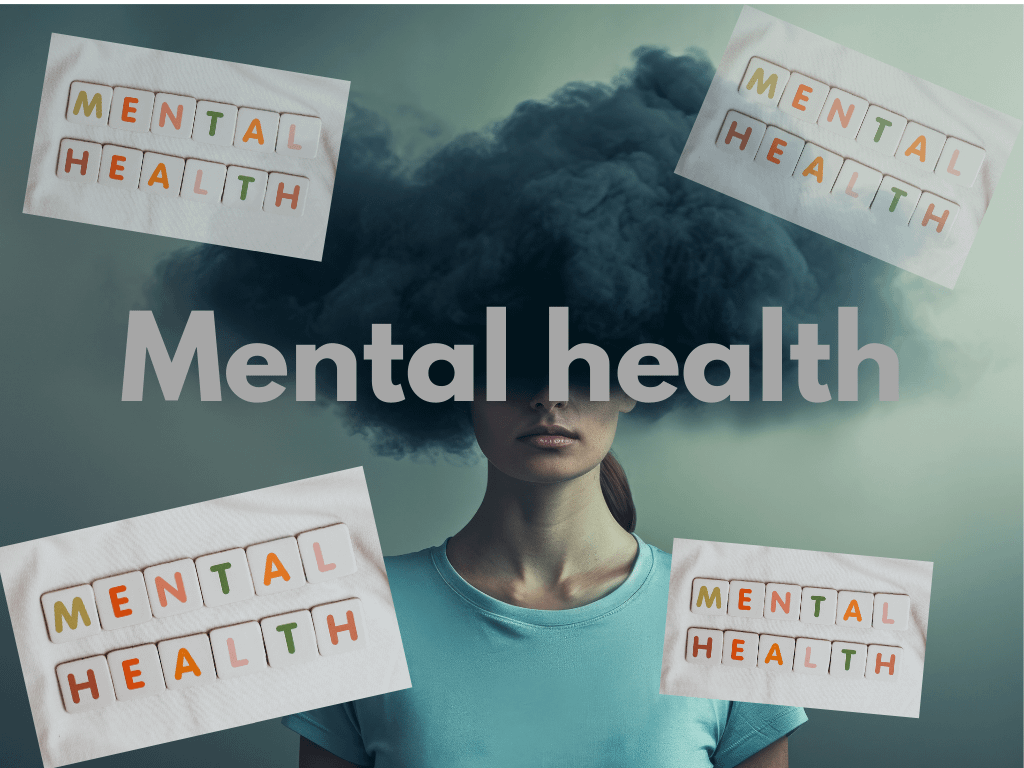Embracing Mental Wellness: The Essential Guide to Mental Health
Introduction
Mental health is an integral part of our overall well-being, affecting how we think, feel, and behave in our daily lives. Just as physical health requires attention and care, mental health needs regular nurturing and support. Whether it’s managing stress, dealing with emotions, or maintaining a positive outlook, understanding and prioritizing mental health can lead to a happier, more fulfilling life. In this guide, we’ll explore the various aspects of mental health and provide practical strategies for maintaining and improving it.
I. Understanding Mental Health
A. The Importance of Mental Health
- Defining Mental Health: Mental health encompasses our emotional, psychological, and social well-being. It influences how we handle stress, relate to others, and make decisions.
- The Connection Between Mental and Physical Health: Good mental health can enhance physical health, while poor mental health can lead to physical issues such as heart disease, headaches, and a weakened immune system.
- Common Mental Health Challenges: Many people experience mental health challenges, including anxiety, depression, and stress. Understanding these issues is the first step toward managing them effectively.
B. Factors Affecting Mental Health
- Biological Factors: Genetics, brain chemistry, and physical health can all impact mental health. For instance, a family history of mental illness may increase the risk of developing similar conditions.
- Life Experiences: Traumatic experiences, such as abuse, loss, or chronic stress, can significantly affect mental health. Positive experiences, like supportive relationships, can enhance resilience and promote well-being.
- Environmental Factors: Living conditions, work environment, and access to healthcare can influence mental health. Safe and supportive environments contribute to positive mental well-being.
II. Strategies for Maintaining Mental Health
A. Building Resilience
- Developing Coping Mechanisms: Resilience is the ability to bounce back from adversity. Effective coping strategies, such as problem-solving, seeking social support, and practicing relaxation techniques, can help manage stress.
- Embracing Change: Life is full of changes, and embracing them with a positive mindset can reduce stress and promote growth. Being open to new experiences and challenges can strengthen resilience.
- Practicing Self-Care: Prioritizing self-care activities like exercise, healthy eating, and adequate sleep is essential for maintaining mental and physical health.
B. Managing Stress
- Understanding Stress Triggers: Identifying what causes stress in your life is the first step in managing it. Common triggers include work pressures, financial worries, and relationship issues.
- Stress-Relief Techniques: Techniques such as deep breathing, meditation, and mindfulness can help reduce stress levels. Regular practice of these techniques can improve overall mental health.
- Work-Life Balance: Striking a balance between work responsibilities and personal life is crucial for reducing stress. Setting boundaries and making time for leisure and relaxation are key components of a healthy lifestyle.

III. Enhancing Emotional Well-Being
A. Building Strong Relationships
- The Role of Social Support: Strong social connections can provide emotional support, reduce stress, and increase feelings of happiness and security. Nurturing relationships with family, friends, and community is essential for mental well-being.
- Effective Communication: Open and honest communication is vital for healthy relationships. Expressing feelings, listening actively, and resolving conflicts constructively can strengthen bonds and improve mental health.
B. Cultivating Positive Emotions
- Gratitude Practice: Regularly practicing gratitude by focusing on the positive aspects of life can boost mood and improve overall mental health. Keeping a gratitude journal is a simple yet effective way to cultivate positivity.
- Mindfulness and Meditation: Mindfulness involves being present in the moment without judgment. Regular mindfulness practice, including meditation, can reduce stress, increase self-awareness, and enhance emotional well-being.
- Pursuing Joyful Activities: Engaging in activities that bring joy, such as hobbies, sports, or creative pursuits, can elevate mood and contribute to a sense of fulfillment and purpose.
IV. Professional Support and Treatment
A. When to Seek Help
- Recognizing the Signs: It’s important to recognize when you or someone you know might need professional help. Warning signs include persistent feelings of sadness, anxiety, irritability, or withdrawal from social activities.
- Types of Mental Health Professionals: Psychologists, psychiatrists, counselors, and social workers are all trained to help with mental health issues. Finding the right professional can make a significant difference in treatment and recovery.
B. Treatment Options
- Therapy and Counseling: Therapy, including cognitive-behavioral therapy (CBT) and talk therapy, can help individuals understand their emotions, develop coping strategies, and improve mental health.
- Medication: In some cases, medication may be necessary to manage mental health conditions. A healthcare provider can determine the appropriate treatment plan based on individual needs.
- Holistic Approaches: Complementary treatments, such as acupuncture, yoga, and nutritional therapy, can be used alongside traditional methods to support mental health.
Conclusion
Prioritizing mental health is essential for leading a balanced, fulfilling life. By understanding the factors that influence mental well-being and implementing strategies for resilience, stress management, and emotional health, you can foster a positive mindset and overall well-being. Remember, seeking professional help when needed is a sign of strength, and with the right support, anyone can improve their mental health and quality of life.
FAQs
What are the key factors that influence mental health?
- Mental health is influenced by biological factors (like genetics), life experiences (such as trauma), and environmental factors (including living conditions).
How can I manage stress effectively?
- Managing stress involves identifying triggers, practicing relaxation techniques, maintaining a work-life balance, and building strong social support systems.
What should I do if I think I need professional help?
- If you’re experiencing persistent negative feelings or behaviors, consider seeking help from a mental health professional like a psychologist or counselor.
What are some ways to improve emotional well-being?
- Building strong relationships, practicing gratitude, engaging in joyful activities, and practicing mindfulness can all enhance emotional well-being.
Is medication always necessary for mental health treatment?
- Medication is not always necessary; it depends on the individual case. Therapy, lifestyle changes, and holistic approaches can also be effective treatments.
